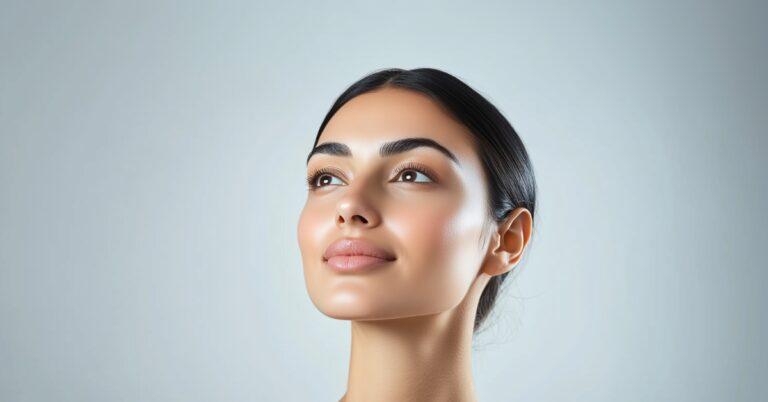For Sensitive vs. Acne-Prone vs. Aging Skin
Why Your Skin Misbehaves
Does your brand-new moisturiser sting like chilli, your face mask trigger a breakout the night before an interview, or your eye cream sit there while fine lines keep waving at you? You’re not alone. Indian skin deals with constant humidity, pollution, hard water, and high-stress lifestyles—from 9-to-9 jobs to all-nighters before exams.
Before buying another “miracle” product, you need to identify which battle you’re fighting: sensitivity, acne-proneness, or visible aging. Each concern has its own causes, triggers, and solutions. In this guide, you’ll learn how to identify your main skin issue, build a routine suited to Indian conditions, and make simple lifestyle tweaks that don’t cost a fortune—or your sanity.
Quick Self‑Assessment Quiz

To start, assess your skin by answering a few yes-or-no questions. Pay attention to how many statements resonate with you under each concern.
Sensitive Skin Signs
If your skin often burns, stings, or flushes when trying new products, or reacts negatively to fragrance, weather changes, or shaving, sensitivity might be your primary issue.
Acne-Prone Skin Signs
Frequent whiteheads, oily skin by lunchtime, period-related breakouts, or deep cysts around the jawline suggest acne-proneness.
Aging Skin Signs
Fine lines when smiling or frowning, lingering dark spots, dullness, or loss of plumpness are all signs of aging skin.
How to Score:
- 3 or more “Yes” answers in one group = your dominant concern.
- 2 or more in two categories = combination concern; treat the more irritated first.
- 1 in each = lucky! Routine maintenance should work well for you.
Sensitive Skin 101
What Triggers Sensitive Skin?
Sensitive skin often has a weak moisture barrier. It flares up easily due to harsh ingredients, sudden weather changes, spicy food, or pollution. Hard water, often overlooked, can also leave skin feeling tight and itchy.
Common Irritants
Avoid alcohol-heavy toners, synthetic fragrances, over-cleansing, and physical scrubs. These disrupt your barrier further and trigger flare-ups.
A Gentle Skincare Routine
Morning:
Start by rinsing your face with lukewarm, filtered water. Use a gentle, pH-balanced cleanser only if needed. Apply a serum containing 5% niacinamide and panthenol to calm inflammation. Follow with a fragrance-free moisturiser rich in ceramides, and finish with a mineral sunscreen (look for zinc oxide or titanium dioxide).
Evening:
Double cleanse only if wearing makeup or sunscreen. Otherwise, a gentle micellar wipe followed by a rinse will do. Apply a soothing centella asiatica gel (“cica”) and seal with a thick cream containing ingredients like squalane or colloidal oatmeal.
Friendly Ingredients: Niacinamide, centella, oat extract, azelaic acid
Avoid: Alcohol, menthol, citrus oils, physical scrubs, high-strength acids
Acne‑Prone Skin 101

Why Breakouts Happen
Excess oil, dead skin cells, and acne-causing bacteria clog pores—especially in India’s heat and humidity. Stress, periods, sugary snacks, and tight helmets or face masks can all contribute to breakouts.
A Simple Acne Routine
Start with a salicylic acid 2% cleanser twice a day. This oil-soluble acid clears clogged pores and gently exfoliates. Add a retinoid like adapalene 0.1% or retinol 0.3% at night, three times a week to regulate cell turnover. Alternate mornings, use azelaic acid (10–15%) to calm inflammation and reduce pigmentation.
Always apply sunscreen, as these actives increase sun sensitivity.
Lifestyle Fixes for Acne
- Replace white rice with low-glycaemic grains like millets.
- Disinfect your helmet padding and phone screen regularly.
- Change pillowcases twice a week to reduce bacteria buildup.
What to Expect Over Time
- Weeks 0–2: You may purge or experience dryness—this is normal.
- Weeks 3–6: Breakouts reduce and heal faster.
- Weeks 8–12: Texture improves and oiliness decreases.
- Week 12+: Pigmentation from old acne fades noticeably.
Aging Skin 101

What Causes Skin Aging?
Only a small portion of facial aging is from birthdays—the real culprit is sun damage. UV rays break down collagen and elastin, causing wrinkles and sagging. Blue light, sugar-heavy diets, stress, and smoking only make it worse.
Rebuilding with Actives
Morning Routine:
Use a gentle antioxidant cleanser followed by a vitamin C 15% serum. Apply a peptide moisturiser to support collagen production, and finish with a broad-spectrum SPF 50+ with a PA++++ rating for full UVA protection.
Night Routine:
Use an oil cleanser if wearing makeup. Apply a retinoid suitable for your age:
- 25–34: Retinol 0.3% (3x/week)
- 35–44: Retinol 0.5% or tretinoin 0.025% (nightly)
- 45+: Tretinoin 0.05% if tolerated
Follow with a hyaluronic acid serum and a ceramide-rich night cream. Add bakuchiol if retinoids are too harsh.
Anti-Aging Habits That Work
- Reapply sunscreen every 3 hours.
- Get 7–8 hours of sleep—this is when collagen repairs itself.
- Try yoga, facial massage, and antioxidant-rich foods like amla or green tea.
Cheat Sheet: Compare the Concerns

Sensitive Skin:
Ingredients: Niacinamide, Centella
Avoid: Fragrance, scrubs
Time: 12 minutes daily
How It Should Feel: Calm, not tight after routine
Acne-Prone Skin:
Key Ingredients: Salicylic acid, Retinoid
Avoid: Heavy oils, comedogenic products
Time: 15 minutes daily
What to Expect: Reduced oiliness by week 4
Aging Skin:
Key Ingredients: Vitamin C, Retinoid, SPF
Avoid: Sun exposure, smoking
Time: 17 minutes daily
Visible Signs: Glow, fewer new lines in 12 weeks.
Lifestyle and Diet Tips That Help All Skin Types

- Drink 2–2.5 litres of water daily, and add a pinch of salt + lemon to replace electrolytes.
- Eat a “rainbow” plate with 5 different colors of fruits and vegetables.
- Use the 20–20–20 rule for screen time: every 20 minutes, look 20 feet away for 20 seconds.
- Exercise at least 150 minutes a week.
- Build a sleep ritual: dim lights, apply lavender lotion, avoid phone screens before bed.
Your Most Common Skincare Doubts

Q1. Can I be both sensitive and acne-prone?
Yes. First repair your skin barrier for two weeks using ceramides, then introduce salicylic acid gently.
Q2. Are DIY treatments like lemon juice or toothpaste okay for pimples?
No. These can irritate or burn your skin. Stick to dermatologist-approved ingredients.
Q3. How long do retinoids take to work?
Expect smoother texture in 8–12 weeks and fewer lines in 24 weeks. Be consistent.
Q4. Do darker skin tones need sunscreen indoors?
Absolutely. UVA rays penetrate windows, and melanin provides only minimal protection.
Q5. Is an expensive serum always better?
Not necessarily. Concentration, stability, and packaging matter more than price.
Your Personalized Skin Care Roadmap

You now know how to identify your skin type, build an effective routine, and shop smart. The key takeaway? Consistency beats complexity. A humble sunscreen re-applied every three hours can outperform the most luxurious night cream.
To keep progressing:
- Retake the quiz after 4 weeks to track improvements.
- Share your wins or questions in the comments.
- Try our 2-minute interactive routine builder for a personalized chart.







